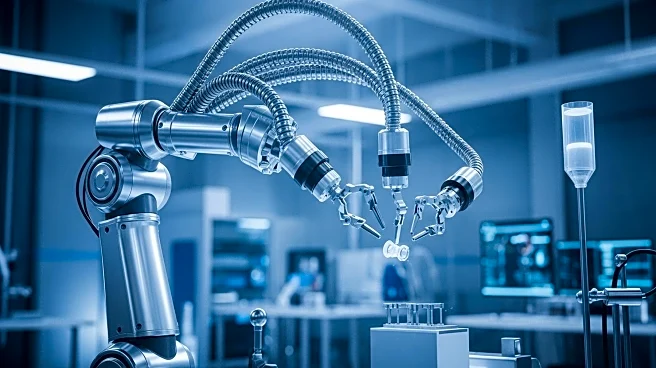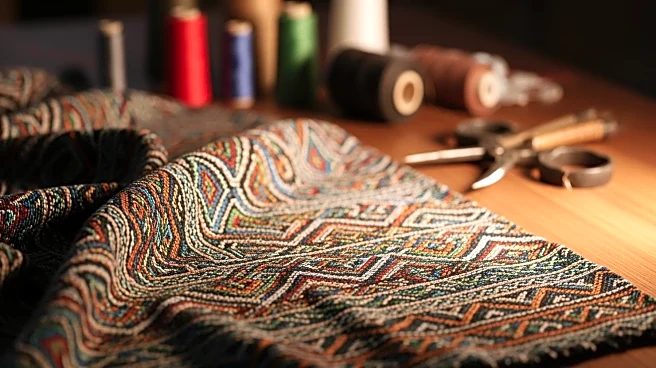What is the story about?
What's Happening?
A recent study conducted by researchers at the Marine Biological Laboratory in Woods Hole, Massachusetts, has unveiled the remarkable multitasking abilities of octopuses. The research, published in the journal Scientific Reports, highlights how octopuses can utilize any of their eight limbs to perform various tasks such as reaching, tiptoeing, or grasping. The study involved analyzing underwater videos of 25 wild octopuses filmed in diverse locations, including Spain, South Florida, and the Cayman Islands, between 2007 and 2015. Researchers meticulously evaluated each video frame to document specific arm movements like tucking, lowering, or rolling, as the octopuses engaged in different behaviors. This research provides new insights into the complex motor skills of octopuses, which are among the most neurologically advanced in the animal kingdom.
Why It's Important?
The findings of this study have significant implications for both biological research and technological innovation. Understanding the complex motor skills of octopuses can shed light on the evolutionary development of neurological functions in animals. Moreover, the study's insights into octopus arm movements could inspire advancements in robotics, particularly in the development of soft robots. These robots, modeled after octopuses, could be used in medical applications or to explore hard-to-reach areas, offering new possibilities for engineering and design. The ability of octopuses to perform multiple actions simultaneously with any limb presents a unique model for creating versatile and adaptable robotic systems.
What's Next?
Future research may focus on further exploring the neurological mechanisms that enable octopuses to coordinate such complex movements. This could involve more detailed studies of their nervous systems and how these translate into motor skills. Additionally, engineers and roboticists may begin to apply these findings to the design and development of new robotic technologies, potentially leading to innovations in medical devices and exploratory tools. The study opens avenues for interdisciplinary collaboration between biologists and engineers, aiming to harness the natural abilities of octopuses for technological advancements.















